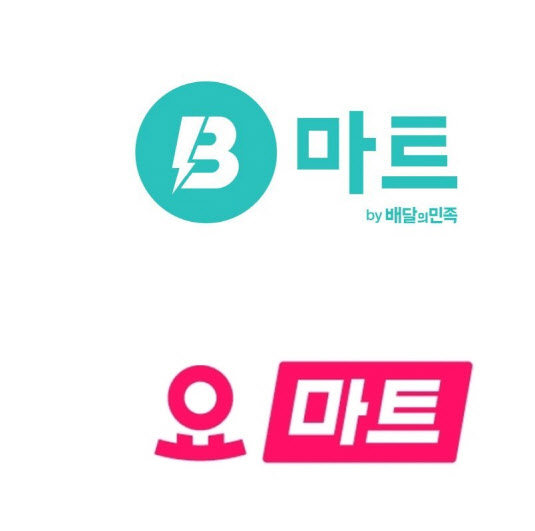Dissatisfaction is emerging in the convenience store industry over its own retail distribution business of delivery applications (apps), such as’B Mart’ of’Delivery of People’ and’Yo Mart’ of’Yogiyo’. It is analyzed that convenience store delivery sales have fallen sharply since the advent of the delivery app retail distribution service.
In particular, the criticism of Yogiyo, who is operating a service with a convenience store on the market, is more intense than the people of delivery. Yogiyo’s position is completely different from general convenience stores because it provides products tailored to the characteristics of each commercial district by differentiating the category (product group), but the convenience store industry is pointing out that it is a behavior that is contrary to commercial clothing.
|
According to related industries on the 24th, sales of delivery app retail distribution services have surged, while convenience store delivery sales are decreasing.
According to the data released by the office of the Democratic Party, Hong Seong-guk, a member of the National Assembly’s Political Affairs Committee in October last year, at the National Assembly Audit, B Mart’s sales as of August 2020 increased 963.3% from November 2019 when the service was launched.
On the other hand, delivery sales at convenience stores in Seoul fell sharply. According to the data from the Korea Convenience Store Owners Association, the number of stores operating the delivery service of convenience store operator A was 942 as of August last year, an increase of 61.8% compared to November of last year, but the average order value decreased by 48%.
B Mart, which was launched in November of last year, is a service that directly purchases and delivers daily necessities that are directly purchased, and the products mainly dealt with convenience stores overlap. Yogiyo also introduced a similar type of Yomart in September of the same year. B Mart is operated by elegant brothers, but Yo Mart is operated by Delivery Hero Stores Korea, a subsidiary of Delivery Hero Korea.
Yo Mart can deliver high-speed delivery within 30 minutes from the downtown logistics base. Yo Mart has been expanding its delivery bases to Songpa, Dogok, Gwanak, and Yeongdeungpo, starting with the first store in Gangnam, Seoul. In the future, it plans to continuously expand service areas.
As delivery apps expand to the’last mile market’ (the market closest to customers), complaints from convenience store owners and other small business owners are pouring out. In particular, hypermarkets are subject to various restrictions on the number of business days, hours, and items sold from the time they enter the store to protect traditional markets and alleys, and are evaluated for win-win cooperation, but B Mart and Yo Mart are virtually’preferred’ because there are no regulations. It is pointed out that it is the same as that.
Gye Sang-hyuk, chairman of the Convenience Store Franchisees Association, said, “(In the case of Yogiyo), we first opened a convenience store delivery service and let convenience store owners use it, and then we opened our own service.” It can’t be delivered. It is a structure in which the whole small business is inevitably difficult.”
It is pointed out that not only the franchisees, but also the convenience store industry, is against the commerce. An official from a convenience store operator said, “Convenience store delivery was activated in a short time, but after the analysis of core commercial districts was completed, we launched our own service, and there was a complaint among store owners.” “Products are overlapping, and even in app exposure or delivery time, it is unfair to general convenience stores. I think I did it,” he criticized.
Another representative of a convenience store conglomerate said that convenience store delivery sales were decreasing due to the advent of B Mart and Yo Mart. He said, “It is true that the delivery sales of stores near Gangnam have fallen since the launch of Yo-Mart,” he said. “It is legally impossible to use the data collected by Yogi-Yoga as a convenience store delivery agent for business, but it is questionable whether the management and supervision of the case is being done properly.
|
Regarding this, an official from Delivery Hero Korea said, “We cannot handle all the products handled by convenience stores, and there are not many overlaps such as brands.” “For example, in the Gangnam area, high-end ingredients and spices are not available, so they cannot be sold at general convenience stores. I try to deal with the products I sell.” “At the beginning of the launch, when Yo Mart was exposed on the top banner, there was a backlash from the convenience store industry, and even though the service exposure was adjusted, complaints continue to come out.” “Yo Mart is delivered by its own delivery personnel, but general convenience store delivery is on behalf of the delivery time. As the company is in charge, there is bound to be a difference in time.”
On the other hand, some point out that it is difficult to say that the appearance of services such as B Mart and Yo Mart led to a decrease in convenience store sales. Rather, it is the view that excessive competition at convenience store stores is the cause of the decrease in sales per store.
GS25 ranked first in the convenience store industry by the number of affiliated stores with 13,818 affiliated stores at the end of last year. It was pushed to the second place in the last year due to the CU of BGF Retail, but it rose to the first place last year. Meanwhile, the average annual sales per franchise area (3.3㎡) decreased from 3129 million won in 2018 to 30.61 million won in 2019. During the same period, CU also increased 690 franchisees, but sales decreased from 26.94 million won to 26.15 million won.


